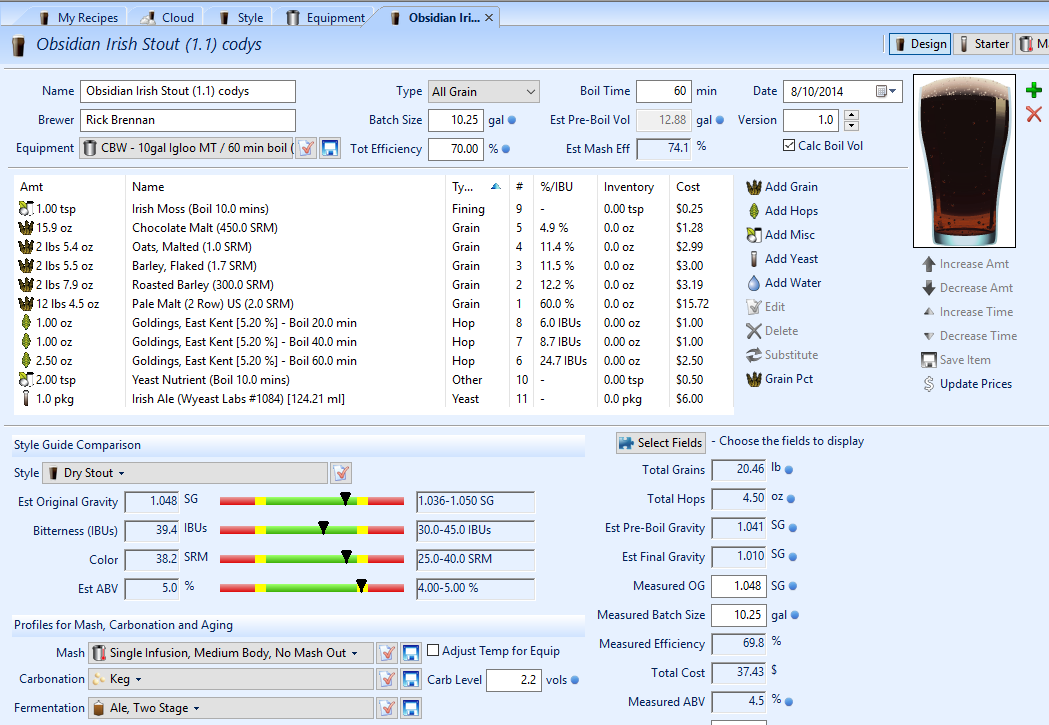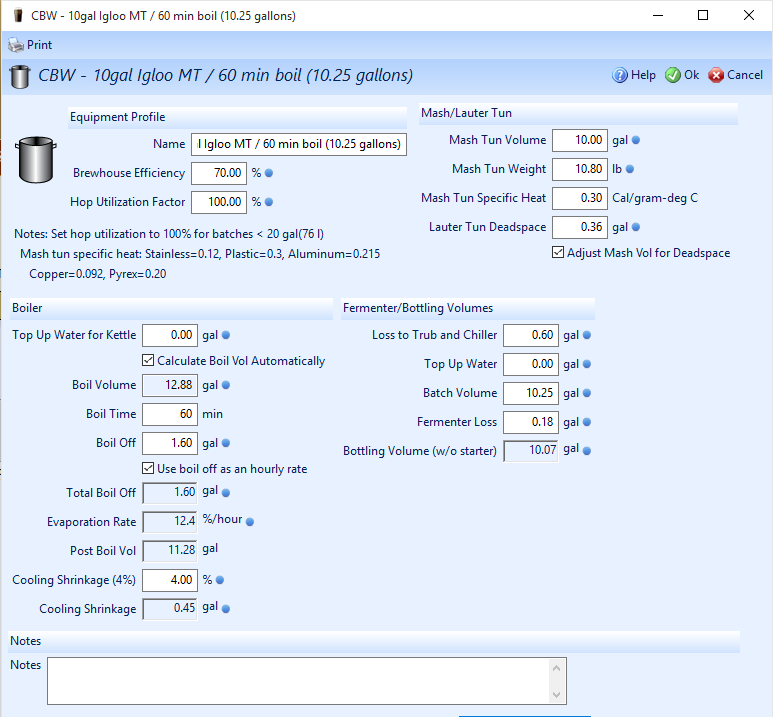Zippox
Well-Known Member
Two questions: What was my mash efficiency at 9 gallons? And would my efficiency have been the same if I didn't add water and continued sparging, yielding my pre-boil volume of 12.88 gallons?
Here's what went down.
In the recipe my estimated pre-boil volume was 12.88 gallons and estimated pre-boil gravity was 1.041. I had inputted that I was expecting to get 70% efficiency.
So during the sparge I checked the boil kettle and it had 9 gallons in it with a gravity of 1.066. -So here's where my first question comes into play: "What was my mash efficiency at 9 gallons?"
And then "would my efficiency have been the same if I didn't add water and continued sparging, yielding 12.88 gallons?"
As a side note, I added a bunch of water while continuing to sparge after that 9 gallon measurement and the runoffs were still around 1.020+ so I had no fear about extracting tannins. I ended up with a preboil volume of 16 gallons and yielded 14 of gallons of beer in the carboys instead of 10.25


Here's what went down.
In the recipe my estimated pre-boil volume was 12.88 gallons and estimated pre-boil gravity was 1.041. I had inputted that I was expecting to get 70% efficiency.
So during the sparge I checked the boil kettle and it had 9 gallons in it with a gravity of 1.066. -So here's where my first question comes into play: "What was my mash efficiency at 9 gallons?"
And then "would my efficiency have been the same if I didn't add water and continued sparging, yielding 12.88 gallons?"
As a side note, I added a bunch of water while continuing to sparge after that 9 gallon measurement and the runoffs were still around 1.020+ so I had no fear about extracting tannins. I ended up with a preboil volume of 16 gallons and yielded 14 of gallons of beer in the carboys instead of 10.25





